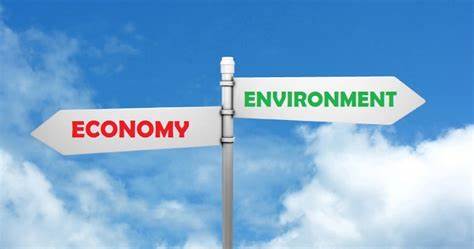
Balancing Economic Growth with Environmental Responsibility in Wastewater Treatment
Introduction
Wastewater treatment plays a crucial role in maintaining environmental health and ensuring sustainable economic growth. As industries expand and urban populations increase, finding a balance between economic development and environmental responsibility in wastewater treatment becomes essential. This article explores the topic, highlighting its relevance and significance in today’s world.
Historical Background
The evolution of wastewater treatment practices dates back centuries. Early civilizations recognized the need to dispose of wastewater properly to prevent the spread of diseases. However, it was not until the industrial revolution that wastewater treatment became more sophisticated. With the rapid growth of industries, new challenges arose in finding a balance between economic growth and environmental responsibility in wastewater treatment.
Key Concepts and Definitions
To understand the importance of balancing economic growth and environmental responsibility in wastewater treatment, it is essential to grasp key concepts and definitions. Economic growth refers to the expansion of industries and economies that rely on wastewater treatment. Environmental responsibility involves minimizing pollution and environmental impact in the treatment process. Sustainable development, frequently mentioned in wastewater treatment, emphasizes meeting present needs without compromising the ability of future generations to meet their own. Regulatory frameworks and policies govern wastewater treatment practices and ensure compliance with environmental standards.
Main Discussion Points
Economic considerations are crucial in wastewater treatment. The cost-effectiveness of different treatment technologies is a primary concern for industries and governments. While some technologies may be more expensive initially, they may offer long-term benefits in terms of operational costs and environmental impact. Economic incentives, such as tax credits or grants, can encourage industries to adopt sustainable wastewater treatment practices, thereby achieving a balance between economic growth and environmental responsibility.
Environmental responsibility in wastewater treatment is of paramount importance. Minimizing pollution and reducing the environmental impact of treatment processes are key objectives. This can be achieved through the use of renewable energy sources in wastewater treatment facilities. By embracing green technologies, such as solar or wind power, treatment plants can reduce their carbon footprint and contribute to a more sustainable future.
Balancing economic growth and environmental responsibility in wastewater treatment also has social implications. Local communities and stakeholders should be involved in decision-making processes to ensure their concerns and needs are addressed. Additionally, equitable access to wastewater treatment services must be ensured to promote social and environmental justice.
Case Studies or Examples
One case study highlights a successful implementation of sustainable wastewater treatment practices in a specific region or country. This example demonstrates how a balance between economic growth and environmental responsibility was achieved, leading to positive outcomes for both the industry and the environment.
Another case study delves into the challenges faced in achieving a balance between economic growth and environmental responsibility in a particular wastewater treatment project. This example sheds light on the complexities and potential conflicts that arise when trying to strike a balance between these two aspects.
Current Trends or Developments
Advancements in wastewater treatment technologies have a significant impact on economic and environmental considerations. New technologies, such as membrane filtration or anaerobic digestion, offer more efficient and cost-effective treatment options. These advancements contribute to the overall sustainability of wastewater treatment processes.
Research findings provide insights into the effectiveness of different approaches to balancing economic growth and environmental responsibility in wastewater treatment. Studies explore the benefits of specific technologies or policy measures, helping to inform decision-making processes and drive further improvements in the industry.
Challenges or Controversies
Conflicts between economic interests and environmental protection goals are a common challenge in wastewater treatment. Sometimes, economic growth takes precedence over environmental responsibility, leading to negative impacts on the environment. Striking a balance between these two aspects often involves navigating complex debates and finding compromises that satisfy multiple stakeholders.
Future Outlook
Potential solutions and innovations are emerging to achieve a better balance between economic growth and environmental responsibility in wastewater treatment. These include the development of more sustainable treatment technologies, the implementation of stringent regulations, and increased collaboration between industries, governments, and communities.
Anticipated challenges and opportunities lie ahead in the future of wastewater treatment. Rapid urbanization, population growth, and emerging contaminants pose new challenges that require innovative solutions. However, these challenges also present opportunities for advancements in technology and policy frameworks to ensure a sustainable future.
Conclusion
Balancing economic growth with environmental responsibility in wastewater treatment is of utmost importance. This article explores the various aspects and challenges associated with achieving this balance, including economic considerations, environmental responsibility, social implications, and current trends. By finding innovative solutions and encouraging sustainable practices, we can ensure the long-term health of our environment while supporting economic growth.